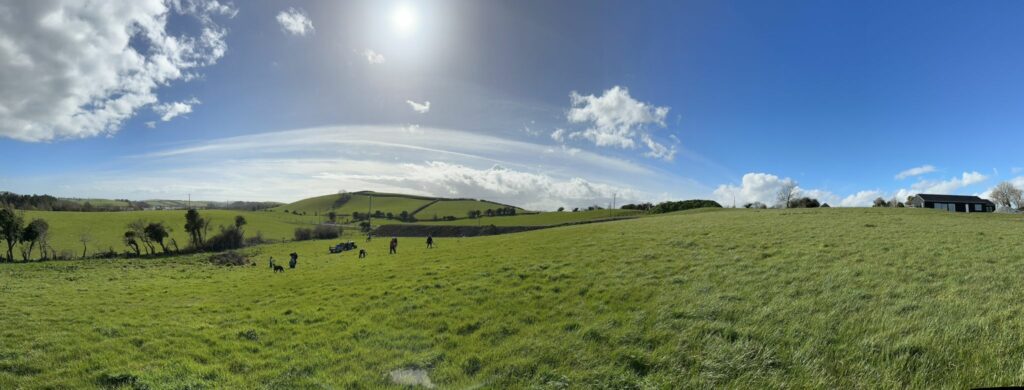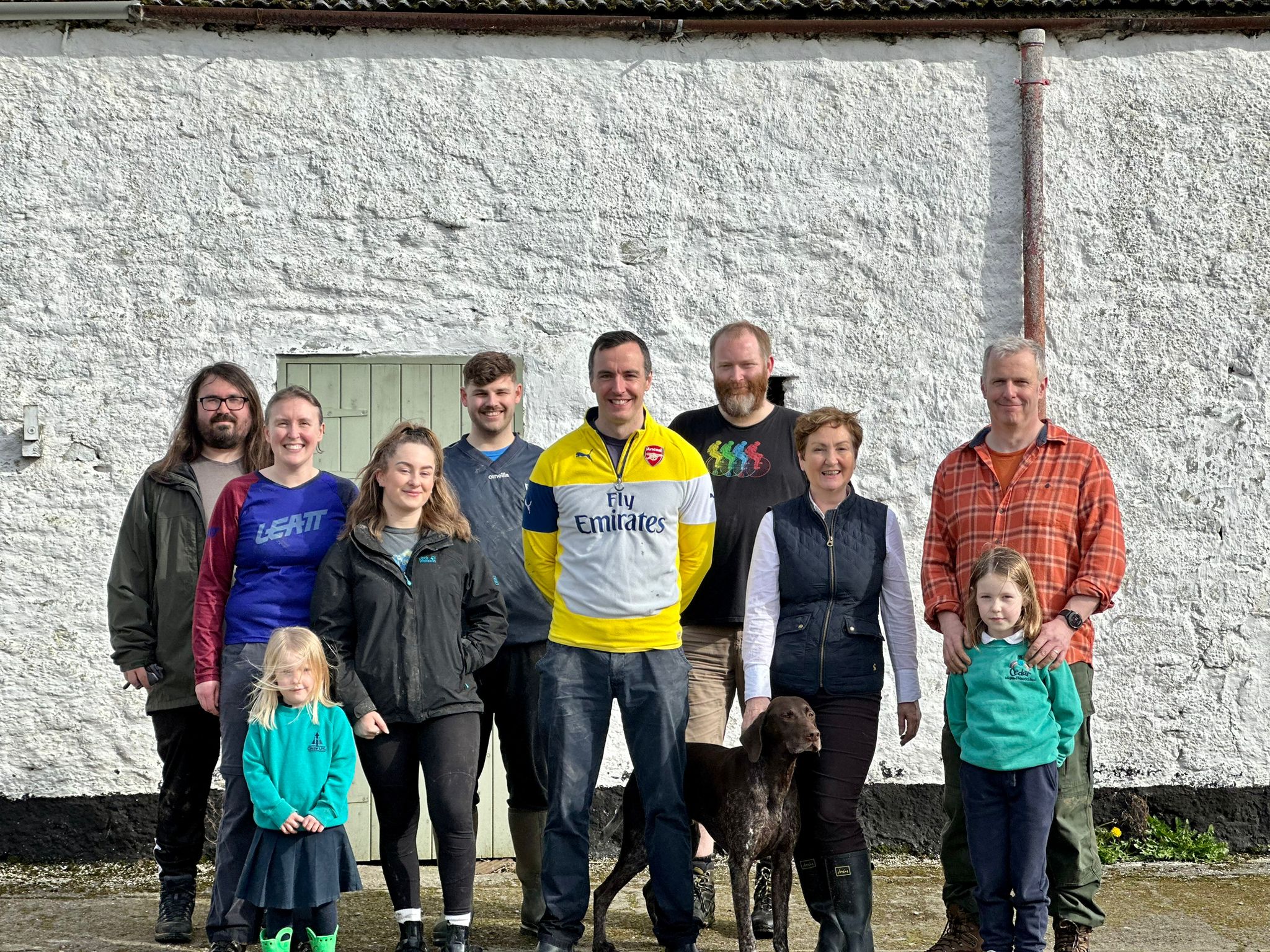TESC has undertaken tree planting in collaboration with Farming Carbon.
Planting 350 native species of trees in the creation of woodland close to the ecologically important area of the Quoile River in County Down.
Overall, tree planting can provide incredible value in terms of ESG for the farm, the local community & the environment.
Environmental Benefits: Trees are important for the environment as they absorb carbon dioxide and other pollutants, provide oxygen, help regulate temperature, prevent soil erosion, and provide habitat for wildlife. Tree planting helps us to contribute to a healthier ecosystem.
Social Benefits: Tree planting can also provide social benefits such as improving air quality, providing shade, and beautifying neighborhoods. This can lead to improved health and well-being for local communities and help enhance the overall quality of life. By supporting farmers, we are also highlighting our values of helping to protect food security while continuing to contribute to nature.

Economic Benefits: Trees can provide economic benefits such as reducing energy costs by providing shade in the summer and acting as windbreaks in the winter. Additionally, trees can reduce the need for manmade infrastructure in protecting areas of ecological diversity from being affected by physical or chemical pollution by creating a barrier in the soil.
This week, 8 members of The Electric Storage Company Staff, planted 350 native trees to create 6 species of woodland, on a farm close to a prominent water ecosystem in Co Down. The site runs downhill into a wetter part at the bottom. Due to the proximity of a watercourse, we were selective about which trees were planted in each part of the site. The alder thrives in the damp, wet ground – so they were planted mostly in the lower area. The other species were planted in a diverse mix. The woodland species included Oak, Scot’s pine, Birch, Sweet cherry, and Rowan.
Each of the tree species has a different life span and was planted in 2m spacing. The Birch and Alder will live for 60 years, while the Oak and Scot’s Pine should still be standing after 600. This variation in lifespan means that our planting, in March 2023 could provide a habitat and a home to generations of wildlife for the next few centuries, and the woodland will continue to grow and change in that time.
Within our tree planting, the flowers on the sweet cherry will feed pollinators, the fruit of the rowan will feed the birds, and the oak will feed the dormouse, squirrels, and jackdaws when it drops its acorn seeds. Each of the trees will grow to create a habitat in itself; as well as the woodland habitat as a whole. The unique ecosystem near this planting site means that the woodland will help to support birds and other wildlife that are perhaps finding it harder to live with humans encroaching on them. 100 Northern Irish wildlife species have been added to the “under threat” list announced a few weeks ago.
Creating woodlands locally provides new habitats for wildlife, which means that our communities can continue to experience diversity in wildlife.
The Alder in the planting will sequester nitrogen and make it available in the soil which improves the soil condition for the plants around it. Removing nitrogen from the atmosphere reduces nitrate oxide, a GHG (greenhouse gas) 300x more potent than carbon dioxide. The benefit of this project is felt by the wildlife, the air, the river, and the farmer.
All of the trees, through the process of photosynthesis, will transform carbon dioxide, a GHG into stored carbon within the tree. The hardwood trees (oak, scots pine) will sequester 1 tonne of carbon per year for the next 100 years.
Farming Carbon liaises with farmers in NI to provide unique & beautiful sites like the location of our tree planting project. The trees planted will create habitats for biodiversity, draw down carbon and help the farmland itself to mitigate potential issues like nutrient contamination of waterways (because of the roots systems cleaning the soil). It has also provided impactful social value for the farmer, who now has a woodland ecosystem, and a buffer for the river, and has felt the support of a collective of people coming to his land and giving their time to help him.
For more information on Farming Carbon contact Steph directly at [email protected] or check out @farmingcarbon on any social media platform.


